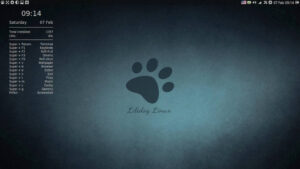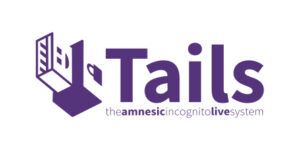Rocky Linux becomes the last of the major RHEL clones to catch up with Red Hat’s latest and greatest. Here’s what you should know.

Nearly two weeks after the release of Red Hat Enterprise Linux 9.3, Rocky Linux 9.3 is now generally available. With AlmaLinux 9.3 being released on November 13 and Oracle Linux 9.3 on November 14, this means all of the major free RHEL clones are up-to-date with Red Hat’s mother ship.
This has been an interesting release period for all of the distros that advertise themselves as drop-in replacements for Red Hat’s Linux distribution. That’s because since RHEL 9.2 was released in May, Red Hat has been working overtime to make it difficult for clones to copy its code.
Working overtime doesn’t mean they’ve been successful, however. The IBM owned company’s efforts to make its code hard to get has actually had the opposite effect, especially after the move prompted SUSE, Rocky’s owner CIQ, and Oracle to team up and form the Open Enterprise Linux Association, an organization tasked with mining RHEL source code to make it freely available to anyone who wants it.
Because of this, both Oracle Linux’s and Rocky Linux’s 9.3 editions continue to be pretty much forks of RHEL (although Oracle does offer an optional “unbreakable” kernel). AlmaLinux decided to take a different approach, by offering a distribution that walks and quacks exactly like RHEL’s latest and greatest, even though most of its code originated in CentOS Stream, which these days is RHEL’s upstream. All three distros claim that if you replace RHEL with their distro, you basically won’t notice a difference.
What’s Ready and What’s Not
For those who run Rocky Linux on their own metal, the new Rocky is ready to go, and supports the x86-64, aarch64, ppc64le, and s390x architectures. Images for Microsoft’s Azure cloud aren’t ready yet, but are on the way.
“Azure images for Rocky Linux 9.3 will be published under a new publisher name: resf, instead of the previous long, unreadable name,” the company said in the release notice it issued on Monday. “These images are not published yet, but should be available by the end of the week.”
The new release also ships with KDE Plasma 9.2 instead of the current 9.3, due to problems that arose during testing. This is only temporary: “until we can build and provide a working image.”
Also, this new release sees the return of cloud and container images for ppc64le, which were missing in Rocky Linux 9.2 because of problems with QEMU.
“These images may be divergent from the other architecture’s images in some small ways,” the Rocky team said, “but we will work to reduce this delta in future releases of the images.”
A complete list of new features and changes is available in the Rocky Linux 9.3 Release Notes.
Upgrade or Install Info
Current users of Rocky Linux 9 can upgrade to 9.3 from the terminal using dnf update, or graphically from the desktop using GNOME Software, KDE Discover, etc. Users of other Enterprise Linux 9 distributions can upgrade and convert to Rocky Linux 9.3 via the migrate2rocky conversion script.
For a new install, go to the Rocky Linux download page, click the proper download option under Rocky 9. and you will be presented the links for downloading and installing Rocky Linux 9.3.
The Rocky Linux 9.x series will be supported until May 31, 3032.
Christine Hall has been a journalist since 1971. In 2001, she began writing a weekly consumer computer column and started covering Linux and FOSS in 2002 after making the switch to GNU/Linux. Follow her on Twitter: @BrideOfLinux









>CIQ delivers Rocky Linux
Christine, you know better. Do you not remember what we talked about in September? Did Igor/Benny pay you to post this? If so, they’re really taking a page from George Soros’ book. You probably also deserve 50 votes on the AlmaLinux board with their sponsors.
Greetings all!
While we appreciate our outspoken community looking out for us and pointing out the errors published by journalists for correction – we prefer to encourage everyone to remain friendly in the responses. We want to uplift the EL community and there’s enough negativity on the internet as is.
Christine is well aware of her mischaracterization between Rocky and one of its sponsors. Everyone knows it’s FUD. The community is free to call her out, but let’s please do so in a civil way and not sling FUD back.
Thanks!
~Stack~
Rocky Testing Team Lead
The company CIQ was founded by Gregory Kurtzer who also serves as the company’s CEO and most likely has a majority ownership position in the company. According to the Rocky Enterprise Software Foundation’s website, Mr. Kurtzer is the sole owner of RESF organized as a 501(c)6 entity, which is not a nonprofit designation — hence Rocky Linux is officially owned by Gregory Kurtzer and not by the community — at least officially which is what really matters in the overall scheme of things.
https://www.resf.org/faq/gregory-kurtzer-owner
https://www.resf.org/faq/is-resf-nonprofit
Greetings,
You are using a partial truth to intentionally mislead and deceive – and you know you aren’t giving the full story.
For those who want to know:
https://www.resf.org/faq/kurtzer-control
https://www.resf.org/faq/rl-resf-ciq
Neither Greg nor CIQ has any direct control over decisions, Boards, resources, secure keys, boot shims, or infrastructure – Rocky Linux is 100% within the community. With only a few exceptions (branding, passwords, legal, ect) everything Rocky does is released into the community under recognized Open Source licenses. Further, the RESF is a separate governance board from the Rocky Linux board – having an article intentionally conflate the two is intentionally misleading. There is a mutually beneficial partnership as there are with any foundation and the projects under it – but there are also protections between the foundation and the project (which is the core of what is being implied by the partial-story above).
We take our community charter seriously because we community driven for the EL community. Only Rocky community has a vote in decisions and every vote is equal – no entity or corporation can buy votes, not even tier-1 sponsors.
If anyone wants to know more, feel free to ask us directly. We publish it all on the web for anyone to see, too.
Thanks!
~Stack~
Rocky Testing Team Lead
It’s interesting that even though AlmaLinux is purposefully setup in a way to unquestionably make it a community owned and maintained distro, we have referred to CloudLinux as the main company behind AlmaLinux, because the distro was founded by CloudLinux. We do this, even though the company has been careful to maintain many degrees of separation between itself and AlmaLinux and has in no way shown itself to have undue influence over Alma’s direction.
Not once during that time, has AlmaLinux complained about this, and in fact we have a pretty good relationship with the AlmaLinux Foundation. But when we point to CIQ or Greg Kurtzer’s similar relationship with Rocky, but one in which Kurtzer does remain the owner-of-record of the project, you guys jump up-and-down and scream bloody murder.
Also, and we don’t want to go into detail here, but no one at AlmaLinux has ever told us an untruth about any competing Linux distribution, including Rocky Linux, for the purpose of gaining an advantage over competing distributions. We can not say the same thing about Rocky Linux.
Alma Linux is built entirely by Cloud Linux behind closed doors without community control or validation. The Alma Linux OS Foundation is the public face and has no direct control or influence over the operating system or what goes into it.
This is why Alma Linux was able to be released so quickly. Plain and simply,Alma is Cloud Linux with new logos and a new name. They even used Cloud Linux’s secure boot shim in Alma Linux among other shortcuts to get Alma released before Rocky.
So what if Greg owns the RESF? They have not demonstrated any negative intentions to the community. None. You are using a weak straw-man argument to try and discredit them.
What is most important is that Rocky is created and maintained by the community proper, and Rocky and the RESF is controlled by a transparent board. You would know this if you did some honest journalism.
You sound surprised that the Rocky team “jump up-and-down and scream bloody murder” when people say things that are intentionally wrong. I’ve seen vitriol coming from both sides (including you), so don’t make it sound like it is all on the Rocky side. That is absolutely disingenuous of you and good for them for defending themselves and the project.
BTW, your slip in using the word “we” to describe Cloud Linux and Alma clearly demonstrates your bias. I’ll paste it below incase you edit your words (which you’ve done in the past).
> “It’s interesting that even though AlmaLinux is purposefully setup in a way to unquestionably make it a community owned and maintained distro, we have referred to CloudLinux as the main company behind AlmaLinux, because the distro was founded by CloudLinux. **We** do this, even though the company has been careful to maintain many degrees of separation between itself and AlmaLinux and has in no way shown itself to have undue influence over Alma’s direction.”
Greetings,
I once again am asking for friendly responses – the point is to uplift the whole EL community.
Addressing the Foss Force response:
I can not comment about Alma and I won’t be baited into a comparison spat. They chose what they thought was best for their community – good for them! They should! We chose what was best for ours. Please kindly leave Alma out of this conversation. How you choose to represent them is between you and them – they are a part of the EL community we are trying to lift up and I have no desire to see tensions between the two communities. I’d prefer things stay friendly in how both communities interact and are represented.
Despite your hyperbole, the reason why you get responses from both the EL community (not just Rocky’s community) and Rocky Linux team members is because of the repeated mischaracterization with partial truths. I’m not sure what you are trying to accomplish, but we post everything clearly for anyone to find. We aren’t trying to hide anything.
I’m not entirely sure what you are hinting at. If you have proof of this accusation, send it to me and I’ll take it to the board to make sure that it doesn’t continue to happen. However, I suspect you are referencing a comment made within the first few months of Rocky’s existence – for which there were repeated public apologies by many team members at the time including Greg. If someone can’t see that we’ve grown as a community and someone is still holding that grudge three years later despite personal and public apologies – perhaps that isn’t a Rocky Linux problem…
We’ve been very public about our mistakes and where we’ve learned from them because, again, we are going for transparency – good and bad. We’ve come a long way and there’s still a lot to learn so I won’t promise perfection only that we are trying to do our best as we promised we would. Again, if you have proof – drop me a message because I want to address it.
Thanks!
~Stack~
Rocky Testing Team Lead
You’re reading our quote wrong, Daniel. The we is indeed referring to FOSS Force. It says that just as FOSS Force has referenced Rocky Linux and CIQ/Gregory together, we have also written articles in which we’ve referenced AlmaLinux as being part of CloudLinux. We, meaning we here at FOSS Force, do this when we’re writing about Rocky or Alma — just as we often reference Red Hat as being part of IBM, although IBM wants us to think of the two as being very separate entities.